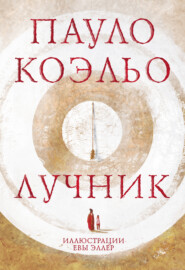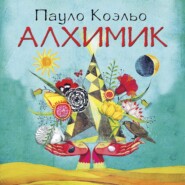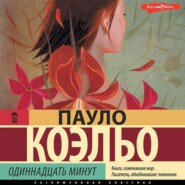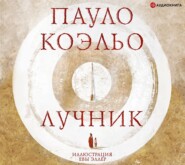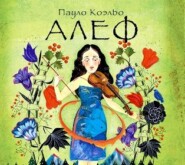По всем вопросам обращайтесь на: info@litportal.ru
(©) 2003-2025.
✖
The Witch of Portobello
Автор
Год написания книги
2018
Настройки чтения
Размер шрифта
Высота строк
Поля
From very early on we discovered that she had a strong religious vocation – she spent all her time in the church and knew the gospels by heart; this was at once a blessing and a curse. In a world that was starting to be divided more and more along religious lines, I feared for my daughter’s safety. It was then that Sherine began telling us, as if it were the most natural thing in the world, that she had a series of invisible friends – angels and saints whose images she was accustomed to seeing in the church we attended. All children everywhere have visions, but they usually forget about them after a certain age. They also treat inanimate objects, such as dolls or fluffy tigers, as if they were real. However, I really did feel she was going too far when I picked her up from school one day, and she told me that she’d seen ‘a woman dressed in white, like the Virgin Mary’.
Naturally, I believe in angels. I even believe that the angels speak to little children, but when a child starts seeing visions of grown-ups, that’s another matter. I’ve read about various shepherds and country people who claimed to have seen a woman in white, and how this eventually destroyed their lives, because others sought them out, expecting miracles; then the priests took over, their village became a centre of pilgrimage, and the poor children ended their lives in a convent or a monastery. I was, therefore, very concerned about this story. Sherine was at an age when she should be more concerned with make-up kits, painting her nails, watching soppy TV soaps and children’s programmes. There was something wrong with my daughter, and I consulted an expert.
‘Relax,’ he said.
According to this paediatrician specialising in child psychology – and according to most other doctors in the field – invisible friends are a projection of a child’s dreams and a safe way of helping the child to discover her desires and express her feelings.
‘Yes, but a vision of a woman in white?’
He replied that perhaps Sherine didn’t understand our way of seeing or explaining the world. He suggested that we should gradually begin preparing the ground to tell her that she was adopted. In the paediatrician’s words, the worst thing that could happen would be for her to find out by herself. Then she would begin to doubt everyone, and her behaviour might become unpredictable.
From then on, we changed the way we talked to her. I don’t know how much children remember of what happens to them, but we started trying to show her just how much we loved her and that there was no need for her to take refuge in an imaginary world. She needed to see that her visible universe was as beautiful as it could possibly be, that her parents would protect her from any danger, that Beirut was a lovely city and its beaches full of sun and people. Without ever mentioning ‘the woman in white’, I began spending more time with my daughter; I invited her schoolfriends to come to our house; I seized every opportunity to shower her with affection.
The strategy worked. My husband used to travel a lot, and Sherine always missed him. In the name of love, he resolved to change his way of life a little. Her solitary conversations began to be replaced by games shared by father, mother and daughter.
Everything was going well. Then, one night, she came into our room in tears, saying that she was frightened and that hell was close at hand.
I was alone at home. My husband had had to go away again, and I thought perhaps this was the reason for her despair. But hell? What were they teaching her at school or at church? I decided to go and talk to her teacher the next day.
Sherine, meanwhile, wouldn’t stop crying. I took her over to the window and showed her the Mediterranean outside, lit by the full moon. I told her there were no devils, only stars in the sky and people strolling up and down the boulevard outside our apartment. I told her not to worry, that she needn’t be afraid, but she continued to weep and tremble. After spending almost half an hour trying to calm her, I began to get worried. I begged her to stop; after all, she was no longer a child. I thought perhaps her first period had started and discreetly asked if there was any blood.
‘Yes, lots.’
I got some cotton wool and asked her to lie down so that I could take care of her ‘wound’. It wasn’t important. I would explain tomorrow. However, her period hadn’t started. She cried for a while longer, but she must have been tired, because then she fell asleep.
And the following morning, there was blood.
Four men had been murdered. To me, this was just another of the eternal tribal battles to which my people have become accustomed. To Sherine, it clearly meant nothing, because she didn’t even mention her nightmare.
Meanwhile, from that date onwards, hell came ever closer and it hasn’t gone away since. On that same day, twenty-six Palestinians were killed on a bus, as revenge for the murders. Twenty-four hours later, it was impossible to walk down the street because of shots coming from every angle. The schools closed, Sherine was hurried home by one of her teachers, and the situation went from bad to worse. My husband interrupted his business trip halfway through and came home, where he spent whole days on the phone to his friends in government, but no one said anything that made any sense. Sherine heard the shots outside and my husband’s angry shouts indoors, but, to my surprise, she didn’t say a word. I tried to tell her that it wouldn’t last, that soon we’d be able to go to the beach again, but she would simply look away or ask for a book to read or a record to play. While hell gradually put down roots, Sherine read and listened to music.
But, if you don’t mind, I’d prefer not to dwell on that. I don’t want to think about the threats we received, about who was right, who was guilty and who was innocent. The fact is that, a few months later, if you wanted to cross a particular street, you had to catch a boat across to the island of Cyprus, get on another boat and disembark on the other side of the street.
For nearly a year, we stayed pretty much shut up indoors, always hoping that the situation would improve, always thinking it was a temporary thing, and that the government would take control. One morning, while she was listening to a record on her little portable record-player, Sherine started dancing and saying things like: ‘This is going to last for a long, long time.’
I tried to stop her, but my husband grabbed my arm. I realised that he was listening to what she was saying and taking it seriously. I never understood why, and we’ve never spoken about it since. It’s a kind of taboo between us.
The following day, he began taking unexpected steps, and two weeks later we were on a boat bound for London. Later, we would learn that, although there are no reliable statistics, during those years of civil war about 44,000 people died, 180,000 were wounded, and thousands made homeless. The fighting continued for other reasons, the country was occupied by foreign troops, and the hell continues to this day.
‘It’s going to last for a long, long time,’ said Sherine. Unfortunately, she was right.
Luka’s Jessen-Petersen, 32, engineer, ex-husband (#ulink_fc964a99-e5e1-5479-b5f5-5c198b602249)
When I first met Athena, she already knew that she was adopted. She was just nineteen and about to have a stand-up fight with a fellow student in the university cafeteria because the fellow student, assuming Athena to be English (white skin, straight hair, eyes that were sometimes green, sometimes grey), had made some insulting remark about the Middle East.
It was the first day of term for these students and they knew nothing about each other. But Athena got up, grabbed the other girl by the collar and started screaming:
‘Racist!’
I saw the look of terror in the girl’s eyes and the look of excitement in the eyes of the other students, eager to see what would happen next. I was in the year above, and I knew exactly what the consequences would be: they would both be hauled up before the vice-chancellor, an official complaint would be made, and that would probably be followed by expulsion from the university and a possible police inquiry into alleged racism, etc. etc. Everyone would lose.
‘Shut up!’ I yelled, without really knowing what I was saying.
I knew neither of the girls. I’m not the saviour of the world and, to be perfectly honest, young people find the occasional fight stimulating, but I couldn’t help myself.
‘Stop it!’ I shouted again at the pretty young woman, who now had the other equally pretty young woman by the throat. She shot me a furious glance. Then, suddenly, something changed. She smiled, although she still had her hands around her colleague’s throat.
‘You forgot to say “please”,’ she said.
Everyone laughed.
‘Stop,’ I asked again. ‘Please.’
She released the other girl and came over to me. All heads turned to watch.
‘You have excellent manners. Do you also have a cigarette?’
I offered her my pack of cigarettes, and we went outside for a smoke. She had gone from outrage to nonchalance, and minutes later she was laughing, discussing the weather and asking if I liked this or that pop group. I heard the bell ringing for class and solemnly ignored the rule I’d been brought up to obey all my life: do your duty. I stayed there chatting, as if there were no university, no fights, no canteens, no wind or cold or sun. There was only that young woman with the grey eyes, saying the most boring and pointless things, but capable, nonetheless, of holding my interest for the rest of my life.
Two hours later, we were having lunch together. Seven hours later, we were in a bar, having supper and drinking whatever our limited budgets allowed us to eat and drink. Our conversations grew ever more profound, and in a short space of time I knew practically everything about her life – Athena recounted details of her childhood and adolescence with no prompting from me. Later, I realised she was the same with everyone, but, that day, I felt like the most important man on the face of the Earth.
She had come to London fleeing the civil war that had broken out in Lebanon. Her father, a Maronite Christian (Editor’s note: a branch of the Catholic Church, which, although it comes under the authority of the Vatican, does not require priests to be celibate and uses both Middle Eastern and Orthodox rituals), had started to receive death threats because he worked for the Lebanese government, but despite this, he couldn’t make up his mind to leave and go into exile. Then Athena, overhearing a phone conversation, decided that it was time she grew up, that she assumed her filial responsibilities and protected those she loved.
She performed a kind of dance and pretended that she’d gone into a trance (she had learned all about this kind of thing at school when she studied the lives of the saints), and started making various pronouncements. I don’t know how a mere child could possibly persuade adults to make decisions based on what she said, but that, according to Athena, was precisely what happened. Her father was very superstitious, and she was convinced that she’d saved the lives of her family.
They arrived here as refugees, but not as beggars. The Lebanese community is scattered all over the world, and her father soon found a way of re-establishing his business, and life went on. Athena was able to study at good schools, she attended dance classes – because dance was her passion – and when she’d finished at secondary school, she chose to take a degree in engineering.
Once they were living in London, her parents invited her out to supper at one of the most expensive restaurants in the city, and explained, very carefully, that she had been adopted. Athena pretended to be surprised, hugged them both, and said that nothing would change their relationship.
The truth was, though, that a friend of the family, in a moment of malice, had called her ‘an ungrateful orphan’ and put her lack of manners down to the fact that she was ‘not her parents’ “real” daughter’. She had hurled an ashtray at him, cutting his face, and then cried for two whole days, after which she quickly got used to the idea that she was adopted. The malicious family friend was left with an unexplained scar and took to saying that he’d been attacked in the street by muggers.
I asked if she would like to go out with me the next day. She told me that she was a virgin, went to church on Sundays, and had no interest in romantic novels – she was more concerned with reading everything she could about the situation in the Middle East.
She was, in short, busy. Very busy.
‘People think that a woman’s only dream is to get married and have children. And given what I’ve told you, you probably think that I’ve suffered a lot in life. It’s not true, and, besides, I’ve been there already. I’ve known other men who wanted to “protect” me from all those tragedies. What they forget is that, from Ancient Greece on, the people who returned from battle were either dead on their shields or stronger, despite or because of their scars. It’s better that way: I’ve lived on a battlefield since I was born, but I’m still alive and I don’t need anyone to protect me.’
She paused.
‘You see how cultured I am?’
‘Oh, very, but when you attack someone weaker than yourself, you make it look as if you really do need protection. You could have ruined your university career right there and then.’
‘You’re right. OK, I accept the invitation.’
We started seeing each other regularly, and the closer I got to her, the more I discovered my own light, because she always encouraged me to give the best of myself. She had never read any books on magic or esoterics. She said they were things of the Devil, and that salvation was only possible through Jesus – end of story. Sometimes, though, she said things that didn’t seem entirely in keeping with the teachings of the Church.
‘Christ surrounded himself with beggars, prostitutes, tax-collectors and fishermen. I think what he meant by this was that the divine spark is in every soul and is never extinguished. When I sit still, or when I’m feeling very agitated, I feel as if I were vibrating along with the whole Universe. And I know things then that I don’t know, as if God were guiding my steps. There are moments when I feel that everything is being revealed to me.’






